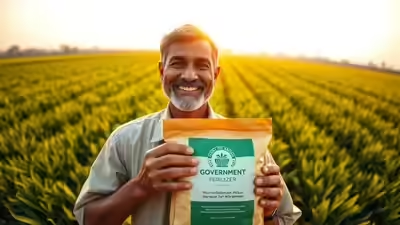Tuesday, 27 January 2026

The Union Cabinet, chaired by Prime Minister Narendra Modi, has cleared Rs 37,952 crore under the Nutrient Based Subsidy (NBS) scheme to support the supply of phosphatic and potassic (P&K) fertilizers for the Rabi 2025–26 cropping season. The revised subsidy rates will be effective from October 1, 2025, to March 31, 2026.
This marks an increase of about Rs 736 crore compared to the Kharif 2025 subsidy outlay, signaling the government’s intent to shield Indian farmers from unpredictable global input costs while ensuring uninterrupted fertilizer availability during a critical production cycle.
Operational since 2010, the NBS mechanism provides subsidies based on the nutrient composition—primarily nitrogen (N), phosphorus (P), potash (K), and sulphur (S)—enabling farmers to access 28 grades of P&K fertilizers, including Di-Ammonium Phosphate (DAP) and NPKS formulations, at affordable and market-stable prices.
Officials from the Department of Fertilizers emphasized that the revised rates have been calibrated to offset recent volatility in international markets for essential raw materials such as DAP, Muriate of Potash (MOP), urea feedstocks, and sulphur. By strengthening the cost buffer for farmers and maintaining a competitive retail price structure, the government aims to preserve both crop productivity and rural income security in the upcoming winter sowing season.
The administration maintains that nutrient affordability is crucial for accelerating the adoption of balanced fertilization—a central tenet of national soil health and sustainability goals. Alongside fiscal support, ongoing reforms in fertilizer tracking, digital subsidy delivery, and domestic capacity expansion are expected to reinforce long-term supply stability.
The approval underscores India’s broader strategic priority: ensuring food security while navigating global commodity shocks. As global fertilizer markets continue to face supply chain disruptions, the NBS support for Rabi 2025–26 positions India’s agriculture sector to remain resilient and production-ready heading into the next harvest cycle.